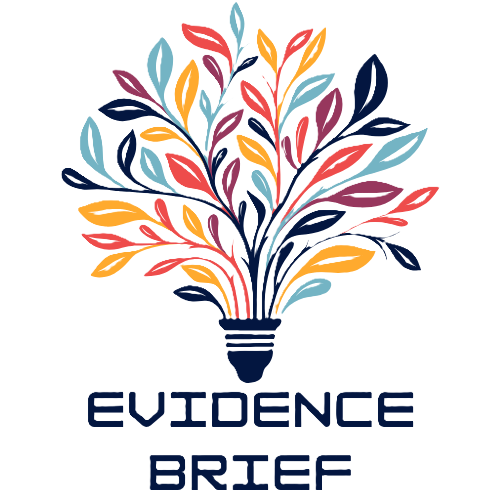In today’s fast-paced world, standing still is like running in place—exhausting and ultimately unproductive. Professional growth goals are the secret sauce to not just surviving but thriving in your career. They’re like a GPS for your ambitions, guiding you through the twists and turns of the workplace jungle. Without them, it’s easy to get lost in the maze of meetings and deadlines.
Professional Growth Goals
Professional growth goals act as a compass, guiding individuals through their career paths. They clarify intentions and help set actionable targets for development.
Definition of Professional Growth Goals
Professional growth goals refer to specific objectives that individuals set to enhance their skills, knowledge, and overall career trajectory. These goals can encompass various areas including skill acquisition, networking opportunities, and leadership development. Effective goals usually align with both personal aspirations and organizational expectations. Measurable outcomes make it easier to track progress and assess achievements.
Importance of Setting Professional Growth Goals
Setting professional growth goals is crucial for navigating the complexities of today’s workplace. Clear goals create a framework that enhances focus and motivation, allowing individuals to prioritize their professional development. Establishing these goals helps identify gaps in skills and facilitates targeted learning experiences. Additionally, they foster accountability, encouraging regular self-assessment and adjustments in strategy. Achieving defined goals contributes to increased job satisfaction and career advancement potential.
Types of Professional Growth Goals

Professional growth goals can be categorized into short-term and long-term objectives. Each type plays a crucial role in fostering career development.
Short-Term Goals
Short-term goals focus on immediate achievements within a specific time frame, typically ranging from weeks to a year. These goals often include acquiring new skills through workshops or online courses. Engaging in networking opportunities at industry events represents another example of a short-term objective. Individuals may aim to enhance their resume by participating in relevant side projects. Tracking progress through attainable milestones contributes to motivation, ultimately leading to consistent career advancement.
Long-Term Goals
Long-term goals encompass broader aspirations that unfold over several years. Developing leadership capabilities serves as a key long-term goal for many professionals. Pursuing advanced degrees or certifications also reflects commitment to career growth. Individuals might aspire to transition into managerial roles or explore new industries entirely. Setting these goals enables professionals to envision their career paths while aligning personal ambitions with organizational growth. Regularly reviewing and adjusting long-term objectives fosters continuous development and sustained motivation.
Strategies for Achieving Professional Growth Goals
Achieving professional growth goals requires intentional strategies that promote self-awareness and external insight. Two effective approaches are self-assessment and seeking feedback.
Self-Assessment and Reflection
Self-assessment enables individuals to evaluate their strengths and weaknesses. They can identify skills needing improvement through regular reflection on experiences and achievements. Setting aside time for personal evaluation helps clarify career aspirations and align goals accordingly. Journaling can serve as a powerful tool, allowing professionals to document progress and recognize patterns over time. Creating a list of accomplishments and challenges facilitates deeper insight into personal development. Ultimately, this practice empowers individuals to remain proactive and adjust their strategies for continuous improvement.
Seeking Feedback and Mentorship
Seeking feedback from peers and supervisors backs personal growth efforts. Constructive criticism offers valuable perspectives that enhance understanding of performance. Engaging in open dialogues about strengths and areas for development fosters a culture of growth. Mentorship builds on this idea by connecting less experienced professionals with seasoned experts. Establishing mentoring relationships allows individuals to gain insights into industry best practices and networking opportunities. Having a mentor also provides guidance in navigating career challenges. Together, these strategies strengthen professional trajectories and contribute to long-term success.
Measuring Progress Towards Professional Growth Goals
Tracking progress towards professional growth goals involves setting clear benchmarks and assessing achievements. Regular evaluation not only provides insights into development but also enhances motivation.
Setting Milestones
Milestones play a crucial role in monitoring progress. Each milestone acts as a tangible marker, allowing individuals to gauge their advancement towards larger goals. Short-term milestones might include completing specific training sessions or acquiring certifications. Long-term milestones, such as earning a promotion or achieving significant project outcomes, further define the trajectory toward overarching objectives. Establishing and reviewing these milestones regularly helps maintain focus and guide decision-making during the growth process.
Evaluating Achievements
Evaluating achievements ensures clarity regarding progress made in pursuit of professional growth goals. Documenting successes provides concrete evidence of skill enhancement and career development. Self-reflection is essential; individuals should analyze what worked and what fell short. Gathering feedback from peers and supervisors adds an external perspective, enriching the evaluation process. Consistent assessment allows for adjustments to strategies and fosters resilience against setbacks. Tracking achievements not only reinforces motivation but also enhances overall career satisfaction and growth.
Conclusion
Setting professional growth goals is essential for navigating the complexities of today’s work environment. These goals empower individuals to take charge of their careers and align personal aspirations with organizational needs. By establishing clear objectives and regularly assessing progress, professionals can enhance their skills and increase job satisfaction.
Embracing intentional strategies such as self-reflection and seeking feedback fosters a culture of continuous learning. This proactive approach not only clarifies career paths but also cultivates resilience against challenges. As individuals commit to their growth journeys, they position themselves for long-term success and fulfillment in their professional lives.

